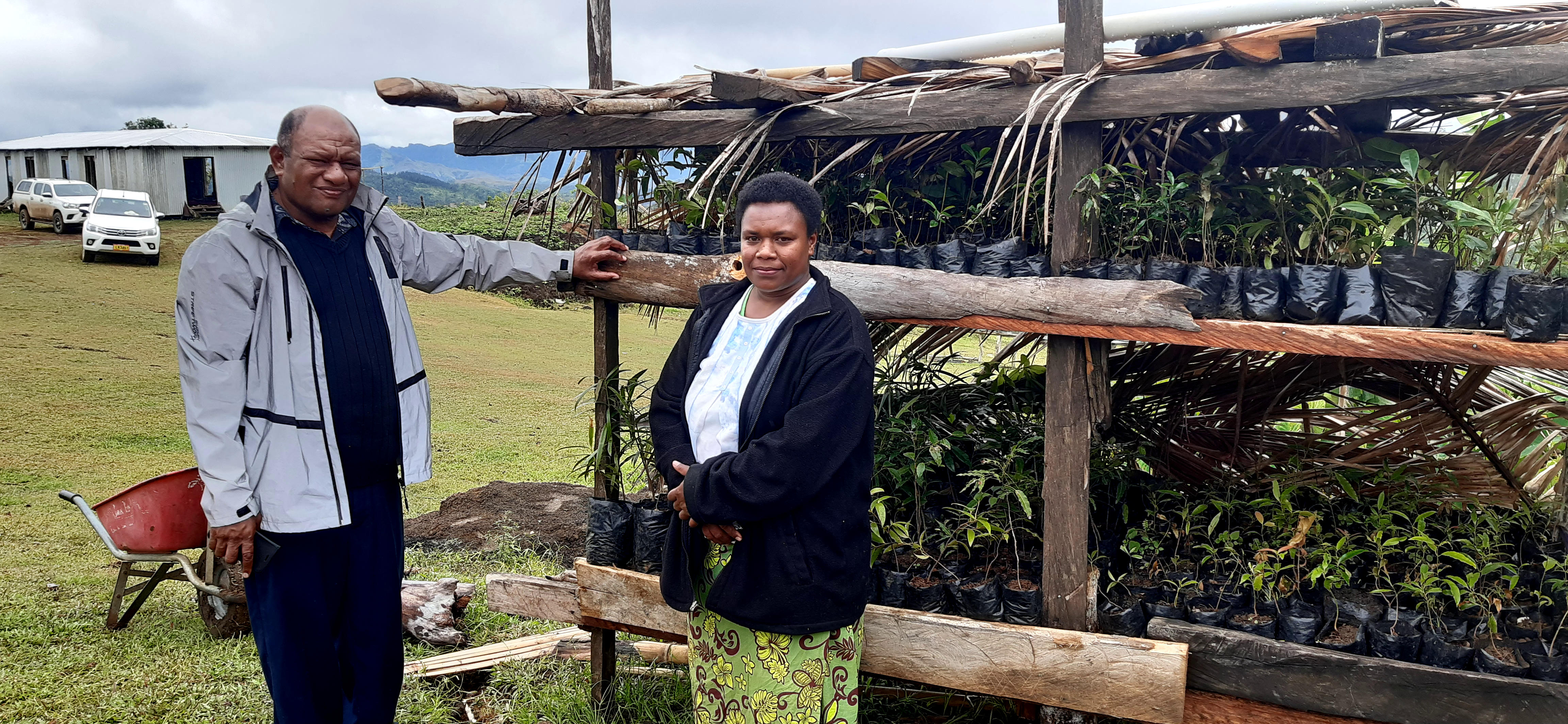
Naiqamu : Tree Survival a Priority
Fiji’s
tree-planting initiative must be seen from a broader perspective where the
priorities include the planting of the right tree at the right place at the
right time and ensuring that the newly planted tree is nurtured, protected and
grown. This is the only way we can achieve the ultimate goal of tree-planting
to protect the environment and address climate change, enhance biodiversity and
facilitate socio-economic development.
These were the sentiments echoed by the Minister for Forestry Honourable Osea Naiqamu as he visited the Ridge-to-Reef (R2R) sites in the Ba Catchment Area earlier this week. Minister Naiqamu visited the villages of Tokoni, Mare and Nanoko in the district of Navatusila in the Nadroga/Navosa Province. He was accompanied by staff from the Ministry and a representative from the SPC.
“Government, through my Ministry, along with the combined efforts of Fijians and visitors alike have planted 2.3 million trees since the initiative was launched last year. But, we have to ensure that these trees are monitored and most importantly that they survive so that we can benefit from their full potential as we mitigate the impacts of climate change,” Minister Naiqamu said.
The Ministry of Forestry is one of the implementing agencies with the R2R Project which is funded by the United Nations Development Program (UNDP) and administered by the Pacific Community (SPC) through the Ministry of Environment.
“My visit around the Ba Catchment Area was to see the tree planting activities that has been carried out so far by Forestry officials and members of the community district of Navatusila,” he said.
He said he is pleased that native and fruit trees planted at the Ba Catchment Area are growing well which means that villagers will have trees that will cater for both their timber needs and food security in the years to come.
“I am also happy to see that my Ministry and SPC have engaged members of the community to help plant trees and also incorporate agroforestry plantations. Sandalwood trees and fruits like pineapple are growing very well in some sites,” Minister Naiqamu said.
“The inclusion and active participation of the communities gives them a sense of ownership that the trees they plant belong to them and these will benefit both them and their future generations.”
Tokoni village headman Mr Luke Ceva said Fiji’s tree planting initiative coordinated by the Ministry of Forestry is one of the best and they fully support it.
“There are just 12 families in our village and we have a population of 70. This is because we are part of one ‘mataqali’ which is Navakaboka,” Mr Ceva said.
“We may be small in numbers but we own a lot of land up here in the highlands and we are just carrying on what our ancestors have been doing that is planting and growing trees and more so protecting our forests.”
Mr Ceva said because of the lush forest cover that surrounds the village they have never experienced water cuts.
“The trees that were planted by our ancestors were planted for a reason and we are seeing the benefits today and we are happy that Government is encouraging us to continue planting trees in grassland areas so that our future generations can also benefit. We are also grateful to SPC and other stakeholders for the protection of the Ba Water Catchment through the R2R,” he said.
The R2R project began in 2015 whereby four selected priority catchments were identified and these include the Ba and Waidina Catchments in Viti Levu and the Labasa and Tunuloa Catchments in Vanua Levu. The project aims to cover all activities from the ridges through the catchments and out to the sea and reefs to ensure a system of high biodiversity that are well rehabilitated, well managed and that there is a protected flow of ecosystem services.
From this project,
27 villages from around these four catchment areas will benefit as they
preserve biodiversity, protect their watersheds and water sources, plant trees
to sequester carbon and improve climate resilience and sustain livelihoods. The
indirect benefits are expected to also flow down to all Fijians.
As the
Ministry responsible for ensuring the sustainable management of Fiji’s forest
areas, Minister Naiqamu added that Fiji’s reforestation of grasslands and
rehabilitation of degraded forest lands in the four catchments will enhance
forest carbon stocks and increase sequestration of carbon through forest
conservation, reforestation, afforestation and enrichment planting which will
also contribute to biodiversity conservation, improved watershed management and
improved food security.
“It is
therefore vitally important that our tree-planting efforts are considered from
a broader perspective. And this includes making sure that the trees survive as
a matter of priority,” Minister Naiqamu said.